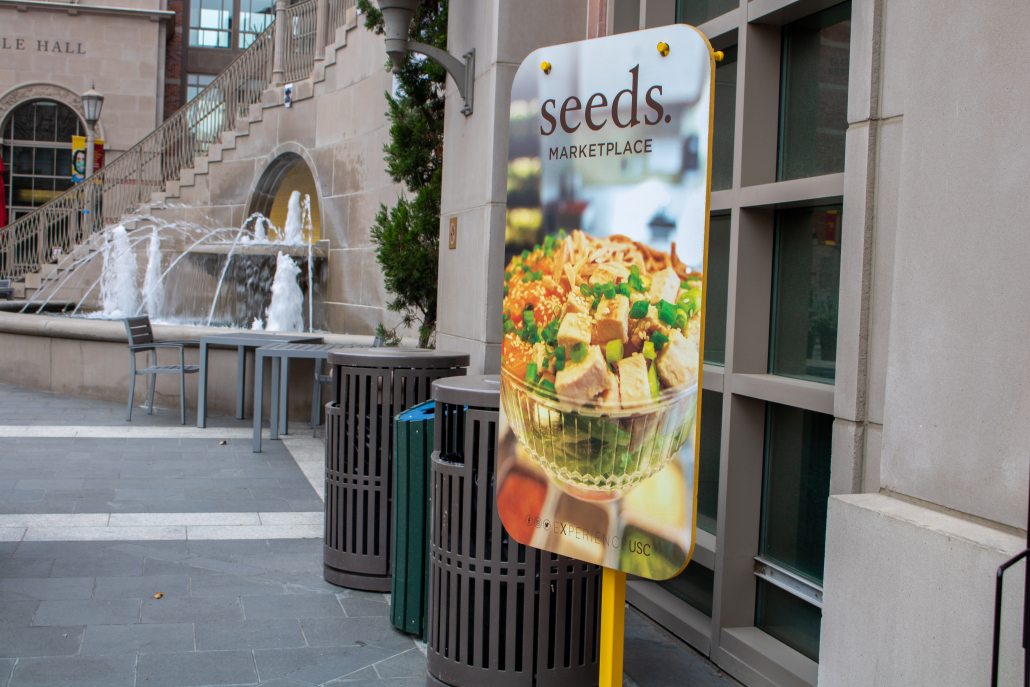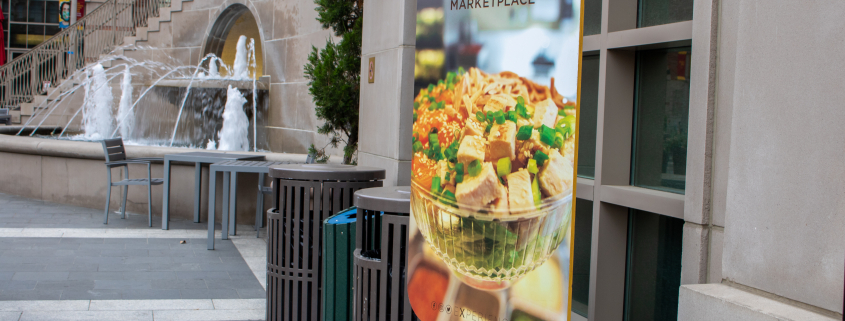Students “shocked” at now-reversed softlock on meal swipes

An hour or two after having lunch on campus Sunday, Hagar Eldeeb, a freshman majoring in neuroscience, went to Seeds Marketplace to get some water. When she tried to check out, her meal swipe declined. Confused as she still had 17 swipes left in the week, Eldeeb asked an employee for assistance. Eldeeb was “shocked” and frustrated to find out that, since she had already used a swipe in the current time-constrained meal period, she’d have to wait to get the water.
The new system, which limited students to three meal swipes per day — one during each designated time block for breakfast, lunch and dinner —differed from the operation of meal swipes during the fall semester, when students with meal plans could use their allotted 19 swipes a week at any time throughout the day.
The change caught students such as Eldeeb by surprise, as USC Hospitality had not officially communicated the change to students until a Jan. 10 email that announced the reversal.
“We’ve recently received inquiries about a restriction that limited meal plan participants to using only one meal swipe per meal period. This change was intended to address technical issues related to mobile ordering, however it also impacted our residential dining venues,” the email from USC Hospitality read. “As of this morning, the one swipe per meal period limit has been removed and all dining plans have been restored to Fall semester settings.”
Luke Morreale, who isn’t currently on campus due to the remote start, said he found out about the softlock through a circulating Instagram post by Muna Obiefule, a freshman majoring in geodesign. Obiefule, who did not respond to the Daily Trojan’s request for comment, encouraged students through her post to contact USC Hospitality and express their concerns. Morreale, who purchased a mandatory meal plan for the year, said he believes the meal swipes restriction was “unfair.”
“It feels like they’re almost punishing people for using the meal swipes that they paid for,” said Morreale, a freshman majoring in astronautical engineering. “If they’re going to make people buy those meal plans, then they’re obligated to kind of fulfill their end of the agreement where people are entitled to use all 19 swipes a week if they want to.”
Eldeeb was also displeased at the change and said she was “infuriated” that she could no longer choose when to get her food.
“Because, at that point, it made the meals and made the foods inaccessible to me, personally because I, myself, have to have smaller meals throughout the day,” Eldeeb said. “That’s based on my own digestive system, like that’s what I can handle.”
One of the students who reached out to USC Hospitality on Jan. 9 about the restriction was Raegan Kirby, a junior majoring in religious studies, who said the restriction “put every student in the same box” by disregarding individual eating habits, especially of those with eating disorders or at risk of developing an eating disorder.
“Because it doesn’t look like [this] every day, three meals at this certain time for everyone,” Kirby said. “If someone has to eat more later on in order to keep with a healthy weight and consumption, then that’s what they have to do, and for the University to put a limit on that is really, really harmful to the community.”
Glad that USC Hospitality overturned the change, Eldeeb said the University’s lack of transparency about the intention behind the softlock caused her to wonder whether it was an effort to prevent students from donating their meal swipes.
“They realized that the students were using their … meal swipes, to help others other than themselves, and for good reasons at that,” Eldeeb said. “It kind of sent out that message to a lot of people that they don’t want that kind of generosity to spread, and they want to limit us, even though we’re the ones paying it anyway.”
Kirby said she similarly feels a “sense of success,” in that the complaints she and other students sent to USC Hospitality resulted in the reversal of the softlock, and is “very thankful” for Obiefule’s post. Kirby said she is concerned, however, about what the change, however short-lived, said about the University’s priorities.
“At the end of the day, USC cares a lot more about performance and how they look to the outside, rather than the actual health of each individual student, unfortunately,” Kirby said. “So this change, I think, it’s kind of helping that.”

